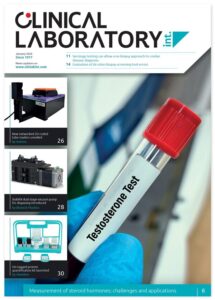Inflammation: a newly identified risk of depression?
According to the World Health Organization, depression affects more than 300 million people and is the leading cause of ill health and disability worldwide. Currently, diagnosis of depression involves the use of questionnaires about the patient’s general health, the way they are feeling and how this is affecting them. Blood tests are carried out during diagnosis, but are for the purpose of excluding other conditions, such as thyroid disease or vitamin D deficiency, that can give rise to symptoms similar to depression. There is no physical test for depression per se. Treatment for depression ranges from ‘wait and see’ and exercise for very mild forms through to self-help groups, talking therapies, such as counselling and cognitive behavioural therapy, for mild to moderate depression, as well as antidepressant medication for the more severe end of the spectrum. There are several classes of antidepressant drugs and treatment is largely through a process of trial and error in order to determine what does or does not work for certain patients, as it is recognized that there is a large variation in the way individuals respond to the different medications. Additionally, although numbers vary, conservative estimates suggest at least 30% of patients do not respond to antidepressant medication, and suffer from what is termed treatment-resistant depression.
However, recently, a line of research about one cause of depression has been gaining traction: the role of inflammation. Recent work suggests that an overactive immune system causing higher levels of inflammation results in an increased risk of depression and that these patients are less likely to respond to antidepressants; perhaps, therefore, the cause of treatment-resistant depression. It has also been noticed that patients taking anti-inflammatory medication for rheumatoid arthritis experience improvements in mood that are more profound than just feeling happier because of reduced pain; changes that have been confirmed by brain scans. Professor Ed Bullmore, Head of the Department of Psychiatry at the University of Cambridge, is certain that inflammation can cause depression and his new book, The Inflamed Mind: A radical new approach to depression, is about to bring these ideas to the attention of a much more general audience. The exciting relevance of this research for clinical lab diagnostics is the thought that a blood test for biomarkers of inflammation will help in an objective diagnosis of a certain type of depression and that treatment will be much better tailored to the individual – perhaps the individuals who fail to respond to current antidepressants. Even if this benefits only a small proportion of people with depression, because of the prevalence of the condition a large number of people will benefit.



